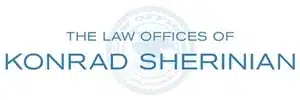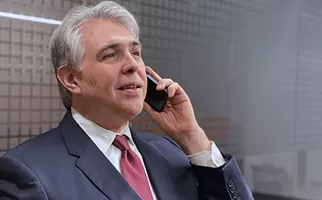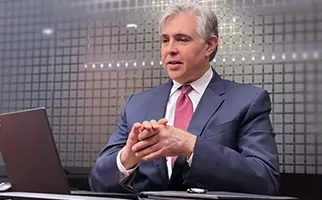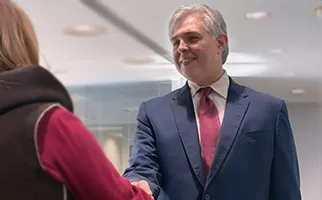An Invention’s Best Protection
At the Law Offices of Konrad Sherinian, LLC, we provide a full range of patent services for your inventions, designs, solutions, and portfolio management. Keep yourself secure from exploitation and people who may take your competitive edge. Our professional lawyers are always ready to help you in all of your patent matters. Our overview includes 5Ws and 1H (WHO, WHAT, WHY, WHERE, WHEN, HOW)
Protect Your Inventions
A patent is a form of property that provides patent owners with the right to protect their inventions, formulas, recipes, and much more from competitors manufacturing, marketing, selling, or importing products that practice the claims of the patent for a specific period.
Patents are territorial rights A patent issued by a particular country will not provide any protection in other countries. However, an application filed in one country, such as the United States, can often be used to claim priority in another country according to various treaties.
You may want to read more about:
Foreign Patents | International Patents
Types of Patents
The United States recognizes three different types of subject matter that can be protected by a patent, as mentioned below;
Utility Patents:
Protect useful inventions, such as a new type of tool, a new kind of drug, or a new way to organize or search a database through Utility Patents.
Design Patents:
Protect aesthetic inventions, such as the particular appearance of a picture frame or the aesthetic features of a cell phone case, through Design Patents.
Plant Patents:
Protect a new and distinct variety of plants that can be asexually reproduced, including cultivated sports, mutants, hybrids, and newly found seedlings, other than a tuber-propagated plant or a plant found in an uncultivated state through Plant Patents.
At the Law Offices of Konrad Sherinian, LLC, our patent expert lawyers can provide skilled and expert services in utility patents and design patents. However, we do not deal with plant patents.
Requirements for Patentability
Do you have an idea or invention and wonder if it’s eligible for a patent? If so, the patent laws state it must be useful, novel, non-obvious, and cover the patentable subject matter. It also must not be known to the public.
Usefulness
Usefulness is a basic factor used to determine if an invention is patentable or not. There are certain types of inventions that are not considered useful, such as inventions that embody an abstract concept or a law of nature. Whether or not an invention is useful arises frequently in the context of software and drug applications.
Novelty
An invention must be completely unknown to others to be patentable, with limited exceptions for the inventor’s own work. In your patent application, you must explain how your invention is different from previous inventions by other people. Generally, if your invention includes at least one new feature as measured against the prior art, then your invention will be considered “novel.”
Non-Obviousness
In addition to being novel, an invention must be non-obvious from the viewpoint of a person of ordinary skill in the art when judged against the prior art. Whether or not an invention is non-obvious is one of the most difficult questions to answer in patent law. For example, a patent may be denied if your invention is just the next logical step of an existing product. Our best patent attorney Chicago, at the Law Offices of Konrad Sherinian, LLC, welcomes our customers to help them identify the patentability of their inventions.
Not Disclosed
It is highly recommended not to discuss your inventions with others until you have filed for a patent to protect your invention. Ensure that your inventions are not announced publicly.
These points will help you to find the patentability of your invention. If your invention is patentable, feel free to contact us today at (630) 318 – 2606.
Patent Infringement
Once a patent has been granted, the patent holder can file a lawsuit in a Federal District Court if s/he has evidence that another infringes on the patent’s claims.
The infringement of a patent is determined by comparing the claims of the patent to the accused product.
If a lawsuit involves a utility patent, the text of the patent’s claim is compared element-by-element to the features of the accused product, and every element of the claim must be present in the accused product for infringement to be found. The specific meaning of various elements of the claims is frequently the subject of litigation in patent suits.
In the case of design patents, the drawings of the design patent are compared to the accused product. Every claimed feature of the drawing must be present in the accused product so that an ordinary observer would find the accused product to be substantially identical to the claim of the design patent.
Patent Ineligibility
You can only protect your inventions, ornamental designs of goods, or plants through patents but not names. If you want to protect a name, a trademark is the best solution for protecting your brand name.
Naturally occurring substances and laws of nature cannot be patented, even if they are newly discovered.
Abstract principles, fundamental truths, calculation methods, and mathematical formulas also are not patentable. However, a process that uses such a formula or method can often be patented.
A patent cannot be obtained for a mere idea or suggestion. The inventor must figure out the concrete means of implementing an idea to get a patent.
A patent for an invention with no legal purpose or an unsafe drug will not be granted. Complicated nuances exist for all of these requirements, and a skilled attorney is generally required to determine if an invention meets these requirements.
The patentability of software is frequently litigated, and you may be wondering if you can have a patent for your software. Our professional lawyers can help you in your Software Litigation.
To get more assistance regarding patents or trademarks, feel free to contact us. Our top-rated patent lawyers in Chicago are happy to help you! Cheers!
Patent 101
Watch Our Video
Here’s a short video describing an overview on patents. It covers a lot of the basics, including the three main types of patents:
-
- Utility Patents
- Design Patents
- Plant Patents
Call for a Consultation
(630) 318-2606
Let’s Talk About Your Invention
Phone Consultation
Find it easier to talk rather than write? Have a lot of questions you want to ask? Let's talk over the phone.
Virtual Consultation
Need to share something on screen with us? Like to see who you are working with? Let's get online.
In-Person Consultation
Prefer a face-to-face and a handshake? We have offices in Chicago or Naperville, Illinois.
Whether you are at the initial starting stage, or trying to protect and enforce what you’ve already have, we can help patent and protect your idea or invention. Reach out to us today. We will quickly set up a time to discuss your intellectual property with an experienced patent attorney.
Available 24/7
Patent FAQs
Here’s a list of the most frequently asked questions about patents. Open each to see our pages dedicated to that topic.
How long does it take to get a patent in Chicago?
The timeline varies depending on the type of patent and the USPTO’s backlog. On average, utility patents take 1-3 years, while design patents are typically processed faster.
What is the cost of filing a patent?
Patent costs vary based on complexity. A utility patent can range from $5,000 to $15,000+, including USPTO and attorney fees. Design patents generally cost less.
Can I enforce my patent if someone infringes on it?
Yes, patent owners can legally enforce their rights and may file lawsuits in federal court for injunctions or damages. A patent attorney can help navigate the process.
What is the difference between utility and design patents?
- Utility Patents protect the functionality of an invention (valid for 20 years).
- Design Patents protect the appearance (valid for 15 years).
Do I need a patent attorney to file a patent?
While not required, working with a patent attorney significantly improves your chances of success, ensuring a strong, well-drafted application and USPTO compliance.
How do I check if my invention is already patented?
A patent search helps determine if an idea is novel. You can search the USPTO database, but a comprehensive attorney-conducted search provides the most reliable results.
Experienced Patent Attorneys
The attorneys at the Law Offices of Konrad Sherinian have extensive experience in patent matters. We’ve helped clients obtain numerous patents, including more difficult categories such as software, electronics, and the mechanical arts. We have obtained numerous patents in the United States and throughout the world. In addition, we have litigated patent cases on behalf of both plaintiffs and defendants in District Courts throughout the United States.




